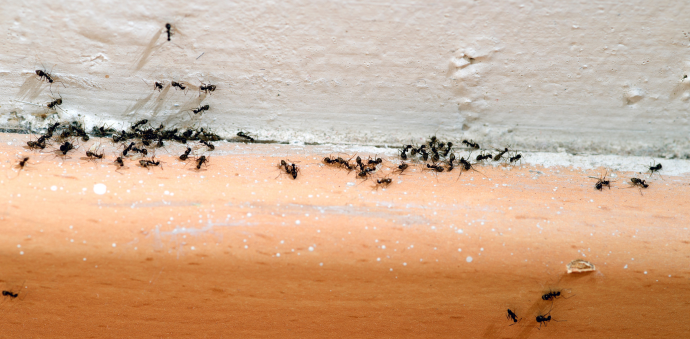
Dealing with a pest infestation in your rental home whether it's bedbugs, roaches, rats, or rodents can be overwhelming and harmful to your health and property. If you’re a tenant in North Carolina asking yourself, “How can I break my lease for pest infestation without penalty?”, understanding your legal rights and the proper steps to take can save you from costly disputes and eviction.
This article covers everything North Carolina tenants and landlords need to know, including:
Under North Carolina landlord-tenant law, landlords are legally required to provide and maintain rental properties in a safe, sanitary, and habitable condition. This responsibility arises from the implied warranty of habitability, which courts enforce to ensure tenants live in environments free from significant hazards, including pest infestations.
While North Carolina statutes might not explicitly list every pest, courts generally agree that recurring infestations of pests such as bedbugs, roaches, rats, or other rodents can violate the warranty of habitability. Landlords must:
Failure to comply with these can give tenants legal grounds to terminate leases.
Tenants may be legally allowed to break a lease early without penalty if:
This situation is often referred to as constructive eviction, where the landlord’s failure to maintain habitable conditions effectively forces the tenant to leave.
Start by gathering strong evidence that proves the infestation exists and is severe, including:
Send a formal written notice describing the pest infestation clearly and requesting prompt pest control treatment. This notice should be:
The law requires landlords to be given a reasonable window to remediate the issue. This usually means:
If the landlord is slow or ineffective in resolving the problem, send follow-up notices documented in writing. Keep all pest control company reports and communications.
Before breaking your lease, consult a legal expert or utilize services like LawPassport to:
If advised you can break the lease, give your landlord a written notice of lease termination, specifying your reasons tied to the uninhabitable condition caused by pests.
Landlords must take infestations seriously to avoid losing tenants and facing legal challenges:
Navigating the legal maze of pest infestations and lease termination can be overwhelming. LawPassport offers an affordable, convenient membership service that connects you with expert landlords-tenant attorneys in North Carolina. Benefits include:
Don’t risk costly mistakes or eviction LawPassport is here to make asserting your rights straightforward and stress-free.
Q: Can I break my lease immediately if I discover pests in my apartment?
A: No, you must provide written notice to the landlord and allow reasonable time for them to fix the issue before breaking your lease legally.
Q: How long is a reasonable time for landlords to fix pest problems?
A: It depends on the species and severity, but prompt action usually within days to a few weeks is expected.
Q: Can I withhold rent if my landlord doesn’t fix the infestation?
A: Withholding rent is risky in North Carolina unless done through a legal process. Consult legal counsel before taking this step.
Q: What types of pests justify breaking a lease?
A: Severe infestations of bedbugs, roaches, rats, rodents, and other health-threatening pests may qualify if untreated.
Pest infestations are serious health and safety concerns that impact your right to a habitable home in North Carolina. Knowing how to break your lease without penalty for pest issues requires understanding the law, documenting your case, and following proper legal steps.
If you’re dealing with pest problems and want to protect your rights confidently, don’t hesitate. Become a LawPassport member today to get expert legal help tailored to North Carolina tenant laws on lease termination and pest infestations.
Join LawPassport now for trusted North Carolina tenant legal support get peace of mind and the relief you deserve from pest infestations and uninhabitable living conditions.
Read: Tenant Rights: Breaking a Lease Due to Rats or Rodents